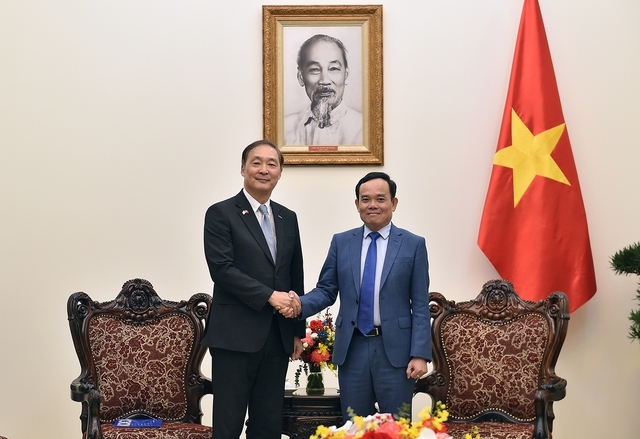South Korea to increase ODA by 50% to Vietnam in 2024
South Korea is the leading investor in Vietnam with a cumulative total of $86 billion.
This year, South Korea's ODA (Official Development Assistance) for Vietnam is projected to exceed $52 million, nearly a 50% increase compared to 2023.
| Deputy Prime Minister Tran Luu Quang (r) and KOICA President Chang Won-sam. Source: VGP |
This information was shared by the President of the Korea International Cooperation Agency (KOICA), Chang Won-sam, during a meeting with Deputy Prime Minister Tran Luu Quang on March 19.
"Both the South Korean government and KOICA hold Vietnam in high esteem," stated Chang.
In June 2023, South Korean President Yoon Suk-yeol committed to providing Vietnam with a $200 million ODA loan for the 2024-2027 period, focusing on environmental protection, healthcare, education, and digital transformation.
As a result, South Korea's ODA for Vietnam this year is approximately $52 million, 1.5 times more than in 2023. "South Korea always listens to identify the most suitable projects for Vietnam's conditions and needs," added the KOICA President.
Established in 1991, KOICA is responsible for South Korea's non-refundable aid projects. Its ODA projects in Vietnam primarily focus on public administration, healthcare, and education. Both parties are considering expanding into new areas, such as climate change adaptation and digital transformation.
South Korea's non-repayable assistance to Vietnam through KOICA amounts to $600 million as of the end of 2023.
Deputy Prime Minister Tran Luu Quang highly appreciated South Korea's provision of ODA to Vietnam as "the fastest, highest-quality, and most effective." He hoped that South Korea would continue to increase the amount of grant aid to Vietnam in innovative, high-tech fields.
Quang also requested KOICA to expedite the South Korean government's official commitment to the Rural Electrification Project from the national grid in Dien Bien, with a total investment of about $20 million.
Currently, South Korea is the leading investor in Vietnam, with a cumulative total of $86 billion. It ranks second in tourism development cooperation and third in trade, with a trade turnover reaching $76 billion in 2023.












